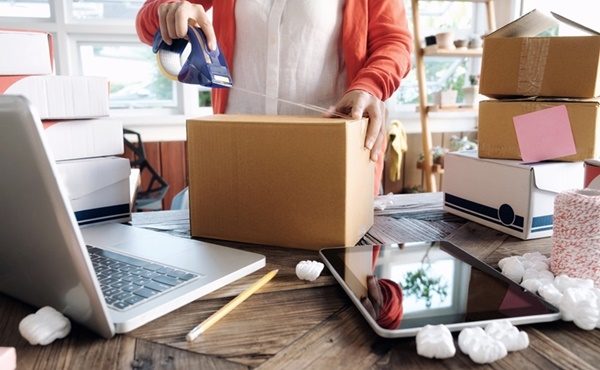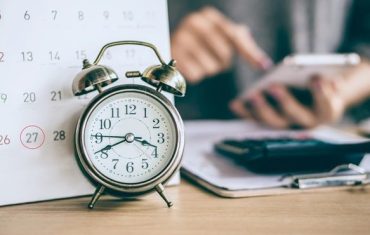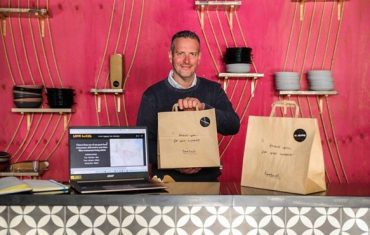The Australian Small Business and Family Enterprise Ombudsman, Kate Carnell, says new research is proving once and for all that digitisation is a key driver of success in small businesses.
A survey of more than 1,000 Australians conducted on behalf of NBN Co, has revealed close to half (49 per cent) of respondents had increased their online shopping during the pandemic shutdown period and 70 per cent are consciously supporting local businesses online.
But more than two thirds of respondents say even though they would like to support more local businesses, they were restricted by the limited digital presence of those businesses.
“Covid-19 has delivered a harsh lesson that small businesses can’t rely on outdated business models and brick-and-mortar stores anymore,” Carnell says.
“Digitisation is now essential for a small business to be truly competitive.
“PwC modelling estimates small businesses could unlock more than $49 billion of private sector output over a decade by adopting better use of mobile and internet technologies. More than half of this benefit could be realised in rural and regional Australia.”
The recent Buy from the Bush campaign is an excellent example―in just four months the 275 regional businesses profiled saw an average revenue increase of 300 per cent. The campaign delivered $5 million to those featured small businesses―all of which had an online presence.
“Equally, new research for the Shop Small campaign revealed about a third of shoppers surveyed feel comfortable with returning to shops even though Covid restrictions are easing. It’s clear as we enter this new normal and live with this virus, having an online presence is critical for small businesses,” she adds.
“We’ve found the most common roadblock to digital adoption has been not knowing where to start and fear of technology.
“There are a number of online workshops that offer good tips to small businesses. In particular, my office has supported the free Grow with Google sessions that cover everything from managing your business remotely to helping your business stand out online.
“We are also backing Kochie’s Business Builders’ Small Business First campaign, offering small businesses a free online directory listing, learning hub and community forum as they work to get back on their feet in these challenging times.”
MYOB research reveals 8 in 10 small businesses still running thanks to JobKeeper
Research released by MYOB has revealed that the government’s JobKeeper program has been a lifeline for small businesses, with 84 per cent of small business owners reporting that JobKeeper subsidy allowed them to continue trading.
Australian small business owners also believe that the government has done a good job, with 71 per cent saying the Australian Government response is better than that of the US, and 68 per cent says it is better than the UK.
This special Covid-19 Edition of MYOB’s long running Business Monitor surveyed more than 1,000 Australian SMEs between April and May, at the height of the pandemic. It highlights the impact Covid-19 has had on small businesses around Australia and across industries including financial, agriculture, trades, transport, retail and hospitality.
The sudden and brutal impact of Covid-19 has seen four in 10 business owners say their business is in hibernation for six months, with a further 24 per cent reporting that their business has or will need to permanently shut down.
The research also found:
● 68 per cent say their revenue is down due to the impact of Covid-19
● 1 in 5 small businesses were very unprepared for the pandemic to hit
● 26 per cent of small businesses say the impact of the epidemic will last at least a year or two
● 1 in 4 respondents think the Australian government responded better to the pandemic than New Zealand
● 84 per cent of small businesses said JobKeeper will allow their business to keep running
● 24 per cent say their business has or will have to permanently close
“The impact of Covid on the small business sector is hard to overstate, as evidenced by the data,” MYOB economist, Jon Manning, says.
“Some small business owners believe their recovery will take only a few months while others are expecting it to take years.
“Ninety-three per cent of small business owners have told us they have seen a reduction in work due to the pandemic. Over the next three to six months 52 per cent of respondents say they expect their revenue to decrease by 20 per cent or more.
“When it comes to projecting how businesses will come out of the pandemic, the outlook is split based on demographics and by industry.
“By industry we can see 35 per cent of transport, postal and warehousing industry believe the disruption will impact their business for up to six months’ time whereas 24 per cent of the retail and hospitality industry believe it will take between one and two years for their business to bounce back,” Manning adds.
One way to help businesses bounce back faster will be to continue to support contactless payments.
“Contactless payments will speed up the circulation of money through the economy, improving business’ cash flow along the way and the bigger the transaction value, the bigger the benefit. As life gets back to normal and Australia starts to rebuild the economy, the shape of the recovery will differ from industry to industry.
“Businesses will bounce back faster if they continue to drive contactless payments to manage cash flow and get paid quicker. If the velocity by which money electronically changes hands from buyer to seller gathers pace and bigger transactions are possible there is no doubt the economic recovery will speed up too,” he says.







